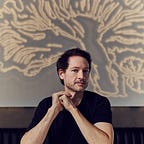A New Era of Industrial Engineering: Using Biology
Ginkgo Bioworks is working to make biology a predictable programming language.
by Bryan Johnson
A new type of foundry in Boston Harbor is ushering in a new industrial era. This foundry has no metal cutters or molten steel. In the 18,000-square-foot facility, scientists are churning out products used for everything from making inventive scents and flavors to fighting antibiotic resistance. These custom-designed products come from an unlikely source: tiny microorganisms.
Ginkgo Bioworks is engineering from nature. Its founders, who hail from MIT and include renowned computer scientist Tom Knight, are redesigning industrial engineering for a new generation, creating a revolution powered by biology.
Ginkgo is starting with the food and cosmetics industries. Its products take a page from people’s long history of culturing foods. Just like we use yeast to make wine and beer and bacteria cultures to make yogurt, Ginkgo is using the natural power of microorganisms to produce new flavors, nutrients and perfumes.
But their vision is much grander: designing organisms to tackle some of humanity’s best opportunities and daunting challenges. Ginkgo’s work includes making microorganisms that fight disease and remove greenhouse gases from our air with groups such as the DOE and DARPA.
It’s a tall order but by working to apply its technology across multiple levels of complexity, Ginkgo hopes to make a biological manufacturing method as reliable and predictable as an assembly line to make a car or a cell phone. This biology revolution promises to rewrite a near endless number of life’s operating systems.
The new foundry, dubbed Bioworks1, is the first organism engineering facility of its kind. Resembling a semiconductor factory, it uses advanced software, robotics and traditional biology to design, build and test DNA. Their automated system works in concert with their scientists to custom-engineer organisms for many different applications. And just like semiconductors, Ginkgo will update the Foundry every couple years to keep up with demand and rapidly improving technology.
Ginkgo is making the programming of biology predictable
Biology is a powerful technology. How a plant self-assembles and uses water, air and sunlight to make food is downright magical compared to how we manufacture electronics, says Jason Kelly, co-founder of Ginkgo Bioworks. He wants to harness that power to design new technology from nature.
“It’s deeply inspiring to be building the tools that enable us to apply the insanely powerful technology of biology to address new applications.”
- Jason Kelly, co-founder of Ginkgo Bioworks
Ginkgo’s scientists are writing a new code base for humanity, taking the programming of biology out of the realm of the unpredictable and into the predictable.
We, our environment, our universe all share a common code base. In living things, this code comprises sequences of base pairs that repeat across organisms. The scientists at Ginkgo are creating the tools and infrastructure needed to build new operating systems and applications using that code.
This is something computer software engineers have been doing for a long time, using 0s and 1s to create predictable outcomes in everything from airplane autopilot systems to processing a credit card transaction. Biological code is not yet there because of nature’s complexity. For decades, biologists, geneticists and chemists have been working to unlock the secrets of genetics to make a universal biological programming language — one in which they can design organisms to perform specific functions in predictable ways.
Just in the last few years, scientists have made amazing breakthroughs, learning how to write and edit DNA code. Making this code more predictable will take time and can start in unlikely places. Take the work that Ginkgo is doing to create natural flavors and scents: Ginkgo has learned how a wild rose produces scents, for example, and identified the genes responsible to engineer a unique rose oil from yeast.
The structured and methodological approach at Ginkgo is accelerating the pace of scientific advancement. This is a big shift from the past, in which an army of highly skilled scientists had to engineer biological cells by hand, requiring 50 different processes. The team at Ginkgo has automated these processes with a bank of robotics, so that they can instead spend their time doing the hard work of designing and customizing cells to solve specific problems.
Ginkgo is working to create a new biological toolkit
Ginkgo is part of a growing cadre of companies such as Synthetic Genomics and Human Longevity that are changing the way we think about nearly every aspect of life by reimagining our world’s biological toolkit. These applied biologists are making organism engineering into a truly predictable engineering discipline.
One exciting application aims to tackle a pressing problem for humanity: antibiotic resistant superbugs. Antibiotic resistance is responsible for an estimated 700,000 deaths a year, according to a recent Wellcome Trust/UK report. Yet pharmaceutical companies are moving away from antibiotic development, so we need a new solution.
What if instead of trying to create new antibiotics, we found a way to remove the antibiotic-resistant genes? Ginkgo is working to design new types of probiotics with such infection-fighting power. These probiotics will not only maintain a healthy community of microorganisms in the human body but also target and remove bacteria with harmful traits such as antibiotic resistance.
Using biology to pursue our best opportunities and solve our greatest challenges opens up an entirely untapped world of solution sets for humanity — an endeavor I couldn’t be happier to support.
I feel fortunate to live in a time when a formerly unimaginable possibility of predictably programming the atoms comprising our existence is now within reach. We’re pleased to be investing in Ginkgo Bioworks, alongside other investors including Felicis Ventures, Data Collective, Y Combinator, iGlobe Partners, Vast Ventures, Azure Capital and iD SoftCapital.
